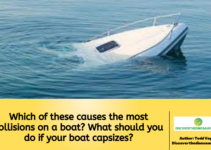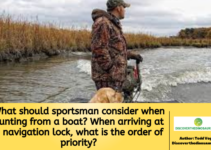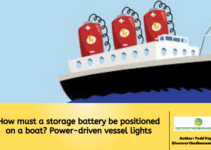If you have a boat that is totaled, your insurance company will likely declare it a “total loss.” This means that the insurer will pay you the fair market value of your boat, minus any applicable deductible.
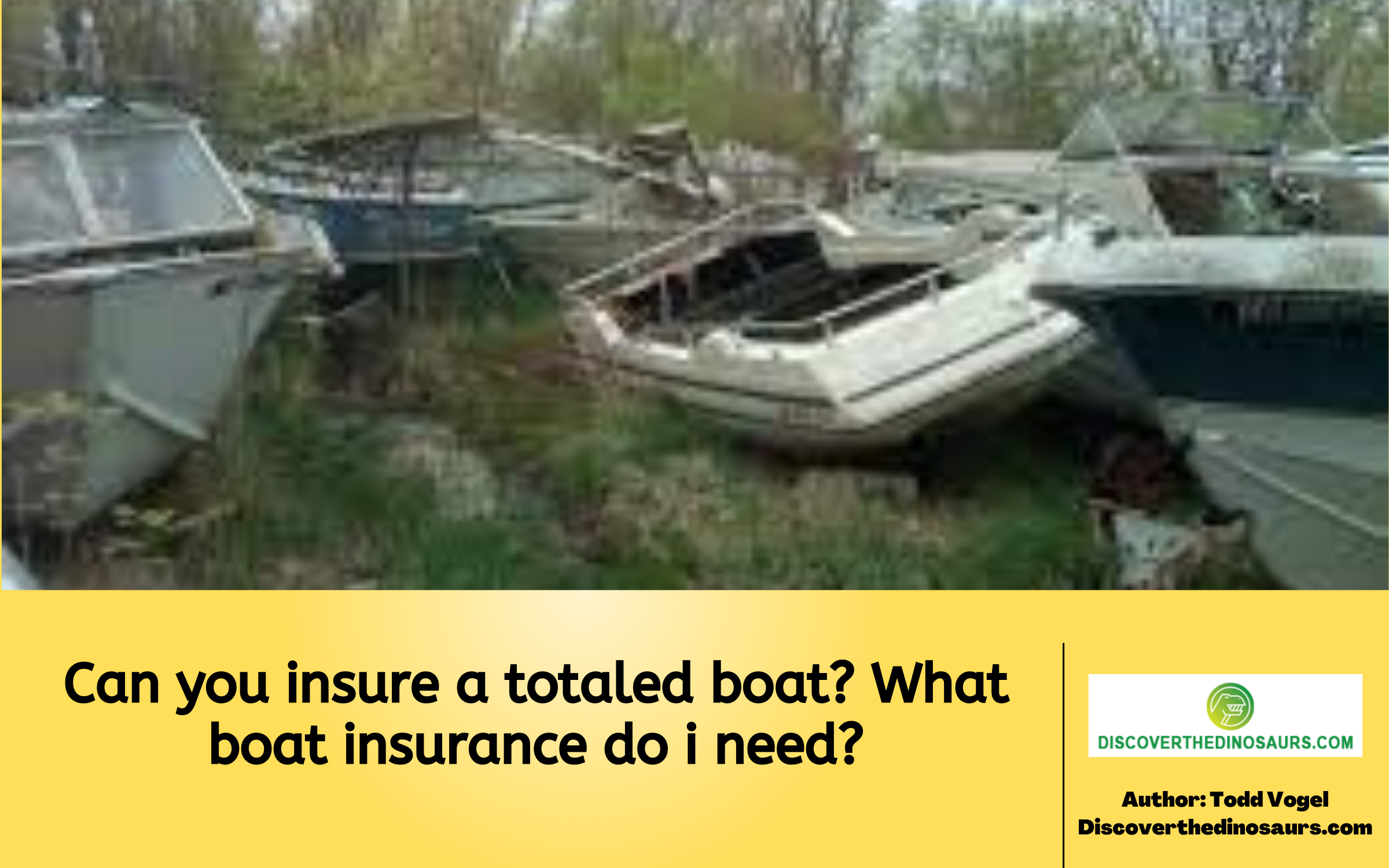
Can you insure a totaled boat? What boat insurance do i need?
In some cases, you may be able to keep your boat and insure it for its full value by buying what’s called an “agreed value” policy. However, this option can be expensive, so it’s important to weigh the costs and benefits before making a decision.
With 5 minutes to read the post, Todd Vogel will answer you the question “Can you insure a totaled boat? What boat insurance do i need?” and more information. Let’s find out!
What Does Boat Insurance Provide Protection For?
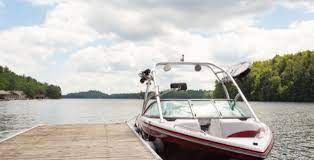
What Does Boat Insurance Provide Protection For?
All states require some form of boat insurance if you wish to register your vessel.
The amount and type of coverage required will differ from state to state, but in general, most policies will protect you against liability risks, physical damage to your boat, and personal injury.
Liability Coverage
This type of coverage protects you financially if you are held responsible for an accident that damages another person’s property or injures another person. Most policies will also provide some level of protection in the event that you are sued as a result of an accident.
Physical Damage Coverage
This type of coverage helps to pay for repairs or replacement costs if your boat is damaged in an accident, by severe weather, or through other means such as theft or vandalism.
Personal Injury Coverage
This type of coverage provides protection for medical expenses and lost wages if you or a passenger on your boat is injured in an accident. It can also provide coverage for funeral expenses in the event of a death.
Add-Ons for Boat Insurance
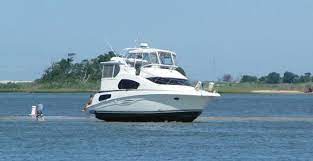
Add-Ons for Boat Insurance
In addition to the standard coverage options, you can also purchase add-ons, or endorsements, to further customize your policy. Some common endorsements include:
Towing and labor – provides coverage for the cost of towing your boat in the event of a breakdown as well as labor costs associated with making repairs.
Watersports liability – provides additional protection if you or someone on your boat is injured while participating in watersports such as skiing or tubing.
Pollution liability – offers protection in the event that your boat causes pollution or oil spills.
Choosing the right boat insurance policy can be a complex task, but it is important to make sure that you have the coverage you need in case of an accident. To learn more about boat insurance and get a quote, contact your independent insurance agent.
Independent Insurance Agents
Trusted Choice® independent insurance agents are here to help you find the right boat insurance for your needs and budget. These professionals can provide you with multiple quotes from different insurers so that you can compare coverage and prices side-by-side. Find a Trusted Choice agent near you to get started.
This content is provided by The National Association of Insurance Commissioners (NAIC). NAIC is a voluntary organization of state insurance regulators founded in 1871 to exchange information, coordinate regulation and conduct research for the benefit of consumers and the insurance industry.
Each year, NAIC provides education to millions of consumers on insurance basics through its consumer web site www.Insurance.gov and publications such as the Your Insurance, Your Choices series.
NAIC member insurers wrote over $560 billion in premiums in 2013. You can contact NAIC at 2301 McGee Street, Kansas City, MO 64108; (816) 842-3600; www.naic.org.
What Expenses Does Boat Insurance Exclude?

What Expenses Does Boat Insurance Exclude?
While boat insurance provides coverage for a variety of risks, there are also certain exclusions that most policies will not cover. These exclusions can include:
- Wear and tear – damage that occurs due to normal use and aging of the boat
- Intentional acts – damage that is caused intentionally by the policyholder or someone acting on their behalf
- War or nuclear risk – damage that is caused by war or nuclear accidents
- Illegal activity – damage that is caused while the boat is being used for illegal activities
Additionally, many policies will also exclude coverage for racing boats or boats that are used for commercial purposes. Be sure to discuss your boat’s usage with your insurance agent to make sure you have the coverage you need.
Consequences of Boating While Under the Influence of Alcohol or Drugs
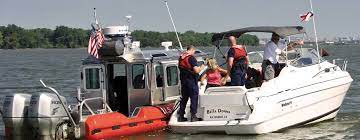
Consequences of Boating While Under the Influence of Alcohol or Drugs
Operating a boat while under the influence of alcohol or drugs is not only illegal, but it can also be extremely dangerous. boating accidents caused by intoxication are all too common, and often result in serious injuries or even death.
If you are caught operating a boat while intoxicated, you could face hefty fines, jail time, and the loss of your boating privileges. In addition, your boat insurance policy could refuse to pay out if it determines that intoxication was a factor in the accident.
To avoid these risks, always operate your boat sober and be sure to designate a sober driver ahead of time if you plan on drinking.
This content is provided by The National Association of Insurance Commissioners (NAIC). NAIC is a voluntary organization of state insurance regulators founded in 1871 to exchange information, coordinate regulation and conduct research for the benefit of consumers and the insurance industry.
Each year, NAIC provides education to millions of consumers on insurance basics through its consumer web site www.Insurance.gov and publications such as the Your Insurance, Your Choices series.
NAIC member insurers wrote over $560 billion in premiums in 2013. You can contact NAIC at 2301 McGee Street, Kansas City, MO 64108; (816) 842-3600; www.naic.org.
Boat Insurance Cost Savings on Boat Insurance Discounts for Boat Insurance
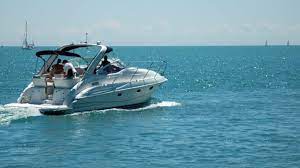
Boat Insurance Cost Savings on Boat Insurance Discounts for Boat Insurance
There are a few different ways that you may be able to save on your boat insurance premiums. One way is to take advantage of discounts that may be available.
Some insurers offer discounts for things like taking a boating safety course or installing certain safety equipment on your boat. Be sure to ask your agent about any discounts that may be available to you.
You may also be able to save on your premiums by raising your deductible. Your deductible is the amount of money you would have to pay out-of-pocket in the event of a claim before your insurance policy would kick in.
By raising your deductible, you can lower your overall premium costs. However, you should only raise your deductible if you are confident that you could afford to pay that amount in the event of a claim.
Lastly, you may be able to save on your boat insurance by shopping around and comparing rates from different insurers. Rates can vary significantly from company to company, so it’s important to get quotes from several different insurers before making a decision. You can use an online comparison tool like the one below to get started.
The National Association of Insurance Commissioners (NAIC) is a voluntary organization of state insurance regulators founded in 1871 to exchange information, coordinate regulation and conduct research for the benefit of consumers and the insurance industry.
Each year, NAIC provides education to millions of consumers on insurance basics through its consumer web site www.Insurance.gov and publications such as the Your Insurance, Your Choices series.
NAIC member insurers wrote over $560 billion in premiums in 2013. You can contact NAIC at 2301 McGee Street, Kansas City, MO 64108; (816) 842-3600; www.naic.org.
Is it necessary to have boat insurance?
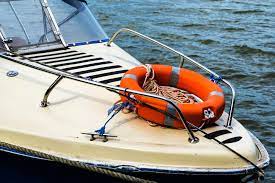
Is it necessary to have boat insurance?
There is no legal requirement in the United States that boat owners carry insurance, but it is highly recommended. A solid boat insurance policy can protect you from financial loss if your vessel is damaged or stolen, and can also provide liability coverage in the event that someone is injured while on your boat.
Without insurance, you would be responsible for all of these costs out-of-pocket, which could easily become prohibitively expensive. In addition, many lenders will require you to have insurance if you finance your boat.
HOW YOU ARE COMPENSATED FOR A COMPLETE LOSS
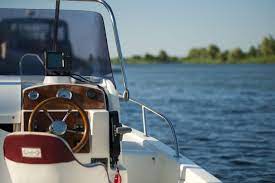
HOW YOU ARE COMPENSATED FOR A COMPLETE LOSS
If your boat is declared a total loss, your insurer will reimburse you for the actual cash value of the vessel, minus any deductibles and depreciation. The actual cash value is determined by taking into account the age, make, model, and condition of the boat, as well as any customizations or upgrades that have been made.
Depreciation is based on how much the value of the boat has decreased since it was new. Keep in mind that if you owe money on your boat loan, the lender will need to be paid first out of any insurance settlement.
Some insurers offer discounts for things like taking a boating safety course or installing certain safety equipment on your boat. Be sure to ask your agent about any discounts that may be available to you.
You may also be able to save on your premiums by raising your deductible. Your deductible is the amount of money you would have to pay out-of-pocket in the event of a claim before your insurance policy would kick in.
By raising your deductible, you can lower your overall premium costs. However, you should only raise your deductible if you are confident that you could afford to pay that amount in the event of a claim.
Value that has been agreed upon in
advance by the insurer and the insured for a particular type of loss.
agreed value insurance:
An insurance policy in which the insurer agrees, in advance of a loss, to pay the policy limit for a covered item regardless of its actual cash value at the time of the loss.
This type of coverage is typically found on high-value items, such as jewelry or art, for which it would be difficult to determine an accurate replacement value. In order for an agreed value policy to be effective, both the insurer and the insured must agree on the item’s value ahead of time and this amount must be specified in the policy contract.
If the item is lost or damaged, the insurer will reimburse the policyholder up to the agreed upon value, regardless of the actual cash value of the item at the time of loss.
There is no legal requirement in the United States that boat owners carry insurance, but it is highly recommended. A solid boat insurance policy can protect you from financial loss if your vessel is damaged or stolen, and can also provide liability coverage in the event that someone is injured while on your boat.
Without insurance, you would be responsible for all of these costs out-of-pocket, which could easily become prohibitively expensive. In addition, many lenders will require you to have insurance if you finance your boat.
Some insurers offer discounts for things like taking a boating safety course or installing certain safety equipment on your boat. Be sure to ask your agent about any discounts that may be available to you.
You may also be able to save on your premiums by raising your deductible. Your deductible is the amount of money you would have to pay out-of-pocket in the event of a claim before your insurance policy would kick in.
By raising your deductible, you can lower your overall premium costs. However, you should only raise your deductible if you are confident that you could afford to pay that amount in the event of a claim.
Actual Cash Value:
The replacement cost of an insured item minus depreciation.
Replacement Cost:
The cost to repair or replace an insured item with one of like kind and quality, without deducting for depreciation.
Depreciation:
A decrease in the value of an asset over time, due to wear and tear, age, or obsolescence. Depreciation is typically calculated using one of three methods: straight-line, declining balance, or sum-of-the-years’-digits.
Deductible:
An insurance policy provision that requires the policyholder to pay a specified amount out-of-pocket for covered losses before the insurer will begin paying benefits. The purpose of a deductible is to share the risk between the policyholder and the insurer, and to deter policyholders from filing small, frivolous claims. The amount of the deductible is typically specified in the policy contract.
Liability Insurance:
An insurance policy that protects the insured against third-party claims for bodily injury or property damage arising out of the insured’s activities. Liability insurance can help protect you from costly litigation and can provide financial protection in the event that you are found liable for damages.
Replacement Cost (in US Dollars)
The cost to repair or replace an insured item with one of like kind and quality, without deducting for depreciation.
Deductible (in US Dollars)
An insurance policy provision that requires the policyholder to pay a specified amount out-of-pocket for covered losses before the insurer will begin paying benefits. The purpose of a deductible is to share the risk between the policyholder and the insurer, and to deter policyholders from filing small, frivolous claims. The amount of the deductible is typically specified in the policy contract.
Liability Limit (in US Dollars)
The maximum amount that an insurer will pay for third-party bodily injury or property damage arising out of the insured’s activities. The liability limit is typically specified in the policy contract.
Conclusion
If you have a totaled boat, it is important to know what your options are. You may be able to file an insurance claim and get compensated for the damage. However, if the boat is beyond repair, you will need to sell it or scrap it.
By understanding your options, you can make the best decision for yourself and your boat. Have you ever had to deal with a totaled boat? What was your experience like?
This discoverthedinosaurs.com post will show the information about “Can you insure a totaled boat?”
- geico boat insurance
- sailboat insurance
- what does boat insurance cover
- what boat insurance do i need
- how much is boat insurance
- best boat insurance
- travelers boat insurance
- how much does boat insurance go up after a claim

